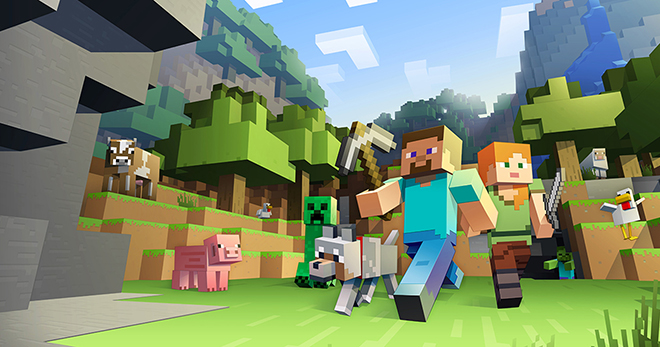Minecraft helps creativity

The very thing that confounds older people about Minecraft is the key to its enhancing creativity in players; the open-ended nature of the game makes problem solving necessary which enhances inventiveness.
Playing Minecraft, with or without instruction, when compared to watching a TV show or playing a race car video game was shown to enhance creativity and imagination. Those given the freedom to play Minecraft without instruction were noted to be the most creative and the effect is enhanced if there is no instruction.
"It's not just that Minecraft can help induce creativity. There seems to be something about choosing to do it that also matters," said Douglas Gentile, a professor of psychology.
Minecraft allows players to explore unique worlds and create anything they can imagine. Study participants randomly assigned to play Minecraft were split into two groups. The one receiving instruction was told to play as creatively as possible.
After 40 minutes of play or watching TV, the 352 participants completed several creativity tasks. To measure creative production, they were asked to draw a creature from a world much different than Earth. More human-like creatures scored low for creativity and those less human-like scored high. Surprisingly, those instructed to be creative while playing Minecraft were the least creative.
Gentile says there's no clear explanation for this finding. In the paper published by Creativity Research Journal, he, Jorge Blanco-Herrera, lead author and former master's student in psychology; and Jeffrey Rokkum, former Ph.D. student in psychology, outlined possible reasons why the instructed Minecraft group scored lower. Blanco-Herrera says the instructions may have changed subjects' motivation for play.
"Being told to be creative may have actually limited their options while playing, resulting in a less creative experience," Blanco-Herrera said. "It's also possible they used all their 'creative juices' while playing and had nothing left when it came time to complete the test."
Most video games encourage players to practice some level of creativity. For example, players may create a character and story for role-playing games or be rewarded for creative strategies in competitive games. The researchers say even first-person shooter games can potentially inspire creativity as players think about strategy and look for advantages in combat.
"The research is starting to tell a more interesting, nuanced picture. Our results are similar to other gaming research in that you get better at what you practice, but how you practice might matter just as much," Gentile said.